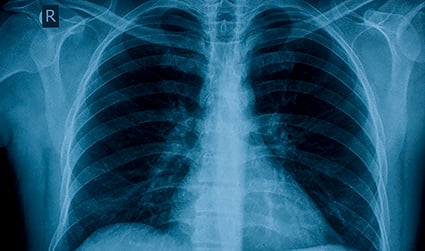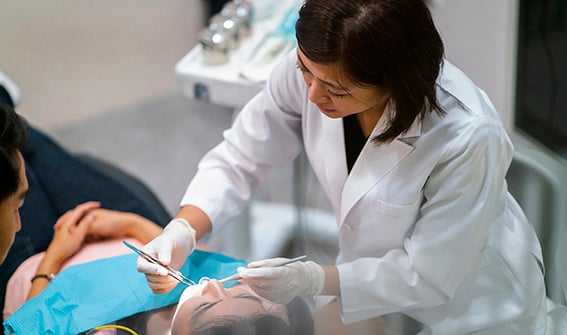Oral Health and Your Lungs: Reducing the Risk of Pneumonia and More
(For Educational Purposes Only)
Healthy teeth and gums may help prevent the risk of you developing lung problems like pneumoniaOpen link in new window and chronic obstructive pulmonary diseaseOpen link in new window.

Your mouth is home to a diverse community of bacteria with over 700 different species. While most of these bacteria are harmless, some can put you at higher risk of developing oral problems like tooth decay and gum disease, be it gingivitis or periodontitis
The bacteria in your mouth do not just stay there; you may accidentally inhale them into your lungs through saliva droplets without even noticing! This may not be an issue for those with healthy lungs, but people with existing lung problems or those who are more vulnerable could end up with infections like pneumonia or chronic obstructive pulmonary disease.

The link between respiratory problems and oral health
When it comes to protecting yourself from pneumonia, good dental hygiene can go a long way. Studies have shown that oral disease is one of the most common risks of pneumonia for elderly people in nursing homes and hospitals. It can also be lifesaving: one study estimated that better oral hygiene may prevent one in 10 nursing home deaths due to pneumonia. This rings true for the rest of the population as well, as an analysis of over 26,000 people in the US found that good oral health and routine dental check-ups may reduce the risk of developing pneumonia.
Chronic obstructive pulmonary disease (COPD), a progressive, lifelong lung disease that affects over 250 million people worldwide, has also been linked to poor oral health. COPD not only makes it harder to breathe, it also puts you at higher risk of developing other health conditions like heart disease and lung cancer.

Healthy teeth and gums, healthy lungs
Reducing your risk of developing respiratory disease can be as easy as maintaining good oral hygiene. Brushing your teeth twice a day is important, but millions of germs are still left in your mouth even after doing so. When you brush your teeth, you can miss spots like the spaces between your teeth and areas below the gums, as well as neglecting areas like your tongue and the insides of your cheeks.
You can take better care of your oral health by rinsing your mouth twice a day with an antibacterial mouthwash that can remove bacteria and help prevent dental problems like tooth decay and gum disease.

